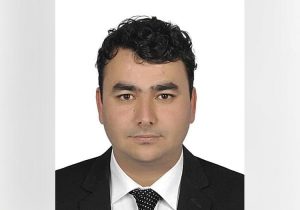The Presence of Women in Post-Agreement Situation Depends on the Nature of Taliban in Power.

Some experts believe that if a peace agreement is signed, the fate of women’s rights and their presence in society will depend on the Taliban’s nature of presence in power.
In an interview with the Civil Society and Human Rights Network (hereafter referred to as “Network”) Mr. Basir said that the impact of the Taliban presence on women’s activities depends on how the Taliban come to power. “If the Taliban enter the government through reconciliation and a political solution, they will have little influence on the activities of women and civil society. But if the peace talks fail or the group join the government without disarmament and reunification under the name of peace, civil society, women’s rights and other democratic processes will certainly shut down.
Network: What is your assessment of the progress made in the peace talks?
Basir: Peace is one of the main demands of the Afghan people. Civilians during the war, especially in the last two decades, have been the main victims and have suffered the most. The start of the Doha peace talks was welcomed by the people in the hope of establishing peace and return to a peaceful life. Unfortunately, these talks have not yielded tangible results so far. The agreement on the dialogue process has not been finalized and the level of violence has increased. Therefore, people’s overall assessment of the peace process is not positive and promising. There have been hopes for progress recently and a general understanding of the dispute between the negotiating parties. It is expected that the deadlock will be resolved and the negotiation process will actually begin.
Network: Given the history of the Taliban, especially with regards to women, do you think that the peace talks will entail any positive outcome?
Basir: With regard to women’s rights, there are two conflicting interpretations between the government and the Taliban. If the negotiating parties do not reduce violence and intensity their demands, it becomes difficult to be optimistic about the outcome of the negotiations.
Network: How will the presence of women in the peace process affect the Taliban’s view of women?
Basir: Their presence can be effective, if the female members of the government’s negotiating team can convince the Taliban of women’s rights through religious narratives. However, it would be difficult to convince them through modern concepts of human rights.
Network: What issues with regards to women should be further emphasized in the negotiations?
Basir: Preserving the achievements of the last two decades, their right to work and education should be emphasized upon. Eliminating violence and discrimination against women should also be prioritized in the peace talks. Women should be present in leadership positions after in the post-agreement era and their fundamental rights should not be violated.
Network: Do you think it should be accepted if Taliban impose restrictions on women’s rights for a peace agreement?
Basir: With restrictions in place, the process of political participation will be questioned and the restrictive view of women will prevail. Therefore, restrictions are not acceptable.
Network: In your opinion to what extent do the female members of the government’s negotiating team are capable of representing women and defending their rights?
Basir: Although some well-informed women are present in the negotiating team, most of them are selected based on their political affiliations. Women from villages and districts should be given the opportunity to send their representatives to these talks. Unfortunately, rural women are always represented by urban women who are not even aware of their demands.
Network: What guarantee do you think there is for the Taliban to abide by their commitments after the peace talks?
Basir: It depends on the outcome of the negotiation’s process. If the outcome of the negotiations is not in favor of the Taliban, there will be natural concerns about non-compliance. However, after the negotiation process and the final agreement, the obligations of the two sides must be guaranteed under the direct supervision of the UN Security Council, in order to eliminate any possible misconduct.
Network: What is your prediction of the outcome of the peace talks?
Basir: The outcome of the Afghan peace talks depends internally on the intentions of the Afghan government and externally on the intentions of the countries involved in the Afghanistan conflict. I wish the outcome would be in the interest of the Afghan people.
Mr. Basir said that peace talks can only be used as an opportunity for women when there is a coherent narrative of women’s demands and needs within Afghanistan given its socio-cultural diversity. The demands of the victims of war, especially women, should be documented and the international community, the United Nations and other influential figures in the Afghan peace process should be satisfied in terms of complying with these demands.